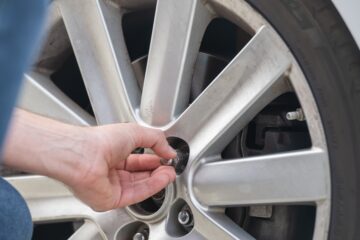Protecting your vehicle with the right car grease

Maintaining your car is crucial if you want it to last longer and run smoothly. One of the essential components that need regular attention is the lubrication system. The right car grease can protect your vehicle’s moving parts from wear and tear, reduce friction, and prevent corrosion. Car grease is a thick, oily substance made of base oil, additives, and thickener. It helps reduce friction between metal surfaces in contact by creating a barrier that prevents them from rubbing against each other directly. It reduces heat generated due to friction which can lead to damage. However, choosing the best grease for your vehicle isn’t always easy.
Viscosity
It is the viscosity of grease that determines how easily it flows or moves around in the application that it is applied to. High-viscosity greases are thicker and best suited for high-load applications such as wheel bearings or chassis joints where they will stay in place even under extreme pressure. Low-viscosity greases are thinner and more fluid-like they are ideal for low-load applications like door hinges or locks because they penetrate small spaces easily. Additives improve grease for machinery performance by enhancing its properties including water resistance, oxidation resistance, and anti-wear protection. For example, the molybdenum disulfide (MoS2) additive provides extra protection against excessive wear caused by heavy weights, while polyurea additives offer better water resistance in wet environments.
Compatibility
A grease compatibility refers to the possibility of mixing two different types of grease without experiencing any adverse effects. It includes reduced effectiveness or even damage to parts over time. Before applying new grease, clean off all the old grease before switching from one type to another. Car greases have different temperature ranges that they operate within effectively. High-temperature applications where temperatures exceed 150°C, while others for low-temperature environments -40°C or lower. Using grease is unsuitable for your vehicle’s temperature range and leads to poor performance and even damage over time. It is too thick for the temperature range and causes components to bind, leading to excessive wear and tear, and grease is too thin to provide adequate lubrication, leading to premature failure. It is vital to use the correct type and viscosity of grease for the temperatures the vehicle will be operating. Now we’re going to look at some of the best car grease options available on the market today.
- Lithium-based greases are popular because they offer excellent water resistance, good oxidation resistance, and a wide operating temperature range. They’re ideal for general lubrication purposes in vehicles such as wheel bearings or chassis joints.
- Synthetic-based greases contain man-made base oils and additives that improve their performance compared to traditional mineral oil-based greases. Both high- and low-temperature environments benefit from their superior wear and tear resistance and extreme pressure resistance.
- Calcium sulfonate complex (CSC) greases provide exceptional waterproofing properties while also offering extreme pressure protection up to 300kg/cm². They’re commonly used in marine applications but also work well in automotive applications where water resistance is essential.










